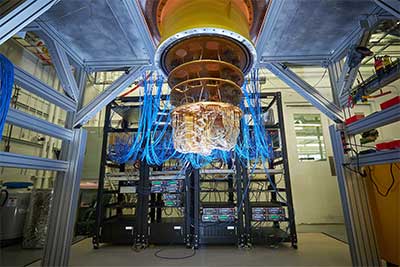World’s first light-based quantum computer
World’s first light-based quantum computer has been created by Chinese scientists recently. Jiuzhang, the quantum computer, can reliably demonstrate “quantum computational advantage. It can solve problems far faster than a classical supercomputer. Jiuzhang used a new method of manipulating 76 photons to do calculations instead of Google’s, which uses superconductive materials.
Jiuzhang takes its name from an ancient Chinese mathematical text. It can perform an extremely esoteric calculation, called Gaussian boson sampling, in 200 seconds. The same task would take the world’s fastest classical supercomputer Fugaku around 600 million years.
About Quantum Computing :
Quantum mechanics emerged as a branch of physics in the early 1900s to explain nature on the scale of atoms and led to advances such as transistors, lasers, and magnetic resonance imaging. The idea to merge quantum mechanics and information theory arose in the 1970s but garnered little attention until 1982, when physicist Richard Feynman gave a talk in which he reasoned that computing based on classical logic could not tractably process calculations describing quantum phenomena. Computing based on quantum phenomena configured to simulate other quantum phenomena, however, would not be subject to the same bottlenecks. Although this application eventually became the field of quantum simulation, it didn't spark much research activity at the time.
All computing systems rely on a fundamental ability to store and manipulate information. Current computers manipulate individual bits, which store information as binary 0 and 1 states. Quantum computers leverage quantum mechanical phenomena to manipulate information. To do this, they rely on quantum bits, or qubits.
Quantum computers could spur the development of new breakthroughs in science, medications to save lives, machine learning methods to diagnose illnesses sooner, materials to make more efficient devices and structures, financial strategies to live well in retirement, and algorithms to quickly direct resources such as ambulances.
Quantum computing could contribute greatly in the fields of finance, military affairs, intelligence, drug design and discovery, aerospace designing, utilities (nuclear fusion), polymer design, Artificial Intelligence (AI) and Big Data search, and digital manufacturing.








